-
28 June 1461 – Coronation of Edward IV at Westminster Abbey.
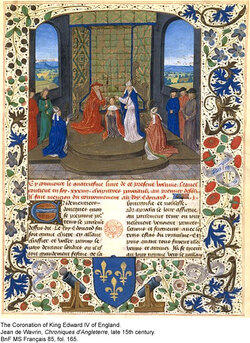

1485 - Gent/Brugge/Ieper recognize Maximilian of Austria as regent of Neth
1491 – Birth of Henry VIII at Greenwich Palace.
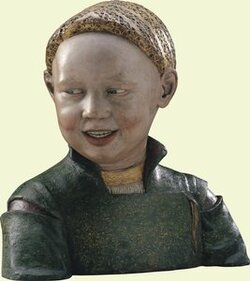
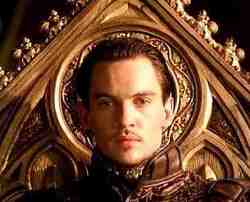
Margaret Beaufort recorded Henry's birth in her Book of Hours:
1516 – Birth of Charles Blount, 5th Baron Mountjoy, courtier and educational patron.
1519 - Charles V is elected Emperor of the Holy Roman Empire.

1536 – Death of Richard Pace
He was educated at Winchester under Thomas Langton, at Padua, at Bologna, and probably at Oxford.
In 1509 he went with Cardinal Christopher Bainbridge, Archbishop of York, to Rome, where he won the esteem of Pope Leo X, who advised Henry VIII to take him into his service. The English king did so, and in 1515 Pace became his secretary and in 1516 a secretary of state. In 1515 Wolsey sent him to urge the Swiss to attack France, and in 1519 he went to Germany to discuss with the electors the impending electi0n to the imperial throne.
He was made Dean of St Paul's in 1519, and was also Dean of Exeter and Dean of Salisbury. He was present at the Field of the Cloth of Gold in 1520, and in 1521 he went to Venice with the object of winning the support of the republic for Wolsey, who was anxious at this time to become pope.
At the end of 1526 he was recalled to England, and he died in 1536. His chief literary work was De fructu (Basel, 1517).
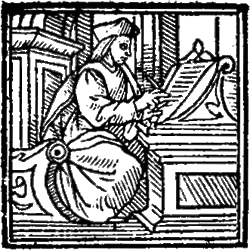
1536-Information against John Hill, of Eynsham, for saying, on 26 June, "that the King caused Mr. Norrys, Mr. Weston, and such as were put of late unto execution, for to be put to death only of pleasure, and that he trusted if that ought should come unto the King's grace save good, to see the king of Scots king of England." One Wm. Saunders also accused him to the bailiff of Bampton of saying "how that he trusted to see the king of Scots wear the flower of England, and how that the King, for a frawde and a gille, caused Master Norrys, Mr. Weston, and the other Queen to be put to death because he was made sure unto the Queen's grace that now is half a year before." Of this, Saunders could not produce proof, and is committed to ward.
1536-The Princess Mary to Jane Seymour
I have received your letters, "no less full of motherly joy for my towardness of reconciliation than of most prudent counsel for my further proceeding therein," which of your goodness you promise to travel to bring to a perfection. Cannot express the comfort this has given her. Promises that from this day she shall neither be lacking in duty to her father, who has the whole disposition of her heart in his noble hand, nor in humble and obedient service to her Grace. Begs her, "with such acceleration as shall stand with your pleasure," to have in remembrance her desire to attain the King's presence.
To the Queen's grace, my good mother.
My lady Mary to the Queen's grace.
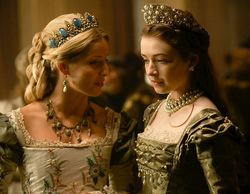
1546 - Anne Askew convicted of heresy

source:wikipedia, Encyclopedia Britannica, 11th Ed. Vol XX. ,http://www.british-history.ac.uk/,https://twitter.com/OntheTudorTrail
-
27 June 1458 – Death of Alfonso V of Aragon
He was the King of Aragon (as Alfonso V), Valencia (as Alfonso III), Majorca, Sardinia and Corsica (as Alfonso II), Sicily (as Alfonso I) and Count of Barcelona (as Alfonso IV) from 1416, and King of Naples (as Alfonso I) from 1442 until his death. He was one of the most prominent figures of the early Renaissance and a knight of the Order of the Dragon.
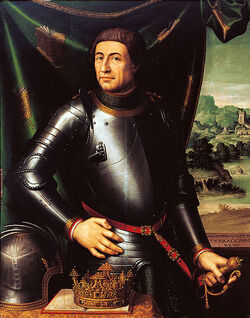
1462 – Birth of Louis XII of France , husband of Mary Tudor
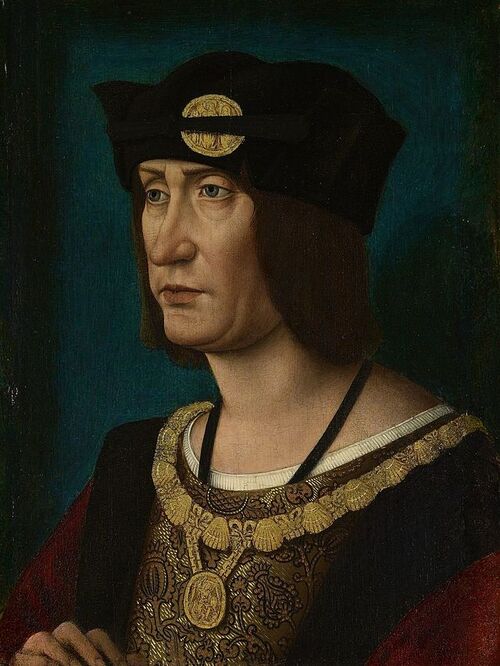
Louis XII was a monarch of the House of Valois who ruled as King of France from 1498 to 1515 and King of Naples from 1501 to 1504. The son of Charles, Duke of Orléans, and Maria of Cleves, he succeeded his cousin Charles VIII, who died without a closer heir in 1498.
Before his accession to the throne of France, he was known as Louis of Orléans and was compelled to be married to his handicapped and sterile cousin Joan by his uncle, king Louis XI. By doing so, Louis XI hoped to extinguish the Orléans cadet branch of the House of Valois.
Louis of Orléans was one of the great feudal lords who opposed the French monarchy in the conflict known as the Mad War. At the royal victory in the Battle of Saint-Aubin-du-Cormier in 1488, Louis was captured, but Charles VIII pardoned him and released him. He subsequently took part in the Italian War of 1494–1498 as one of the French commanders.
When Louis XII became king in 1498, he had his marriage with Joan annulled by Pope Alexander VI and instead married Anne of Brittany, the widow of his cousin Charles VIII. This marriage allowed Louis to reinforce the personal Union of Brittany and France.
Louis persevered in the Italian Wars, initiating a second Italian campaign for the control of the Kingdom of Naples. Louis conquered the Duchy of Milan in 1500 and pushed forward to the Kingdom of Naples, which fell to him in 1501. Proclaimed King of Naples, Louis faced a new coalition gathered by Ferdinand II of Aragon and was forced to cede Naples to Spain in 1504.
Louis XII did not encroach on the power of local governments or the privileges of the nobility, in opposition with the long tradition of the French kings to impose an absolute monarchy in France. A popular king, Louis was proclaimed "Father of the People" (French: Le Père du Peuple) in 1506 by the Estates-General of Tours for his reduction of the tax known as taille, legal reforms, and civil peace within France.
Louis, who remained Duke of Milan after the second Italian War, was interested in further expansion in the Italian Peninsula and launched a third Italian War (1508–1516), which was marked by the military prowess of the Chevalier de Bayard.
Louis XII died in 1515 without a male heir. He was succeeded by his cousin Francis from the Angoulême cadet branch of the House of Valois.
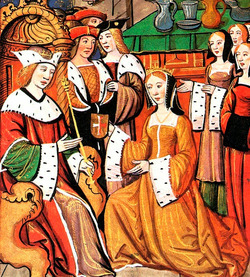
1497 – Cornish rebels Michael An Gof and Thomas Flamank are executed at Tyburn, London, England.
1505- Prince Henry, on his father's orders, made secret but formal protest against marriage to his brother's widow. the King was anxious to delay the marriage as he still hoped to find a better match for his son. However, he did not want to formally break off the engagement as he wanted to keep the first instalment of Catherine's dowry which had been paid after her marriage to Arthur.
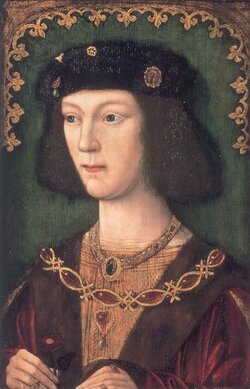
source:http://www.historyonthenet.com/
1550 – Birth of Charles IX of France

He was a monarch of the House of Valois who ruled as King of France from 1560 until his death. He ascended the throne of France upon the death of his brother Francis II.
After decades of tension, war broke out between Protestants and Catholics after the massacre of Vassy in 1562. In 1572, after several unsuccessful peace attempts, Charles ordered the marriage of his sister Margaret of Valois to Henry of Navarre, a major Protestant leader and the future King Henry IV of France, in a last desperate bid to reconcile his people.
Facing popular hostility against this policy of appeasement, Charles allowed the massacre of all Huguenot leaders who gathered in Paris for the royal wedding at the instigation of his mother Catherine de' Medici. This event, known as the St. Bartholomew's Day Massacre, crippled the Huguenot movement.
Charles sought to take advantage of the disarray of the Huguenots by ordering the Siege of La Rochelle, but was unable to take the Protestant stronghold.
He died without legitimate male issue in 1574 and was succeeded by his brother Henry III.

1556 – The thirteen Stratford Martyrs are burned at the stake near London for their Protestant beliefs.
The Stratford Martyrs were a group of eleven men and two women, who were burned at the stake together for their Protestant beliefs, at Stratford-le-Bow or Stratford near London in England on 27 June 1556, during the Marian persecutions.
A detailed description of the event is in John Foxe's book, The Acts and Monuments.Foxe lists those executed: Henry Adlington, a sawyer of Grinstead, Laurence Pernam, a smith of Hoddesdon, Henry Wye, a brewer of Stanford-le-Hope, William Halliwel, a smith of Waltham Holy Cross, Thomas Bowyer, a weaver of Great Dunmow, George Searles, a tailor of White Notley, Edmund Hurst, a labourer of Colchester, Lyon Cawch, a Flemish merchant of the City of London, Ralph Jackson, a servant of Chipping Ongar, John Derifall, a labourer of Rettendon, John Routh, a labourer of Wix, Elizabeth Pepper of Colchester who was pregnant, and Agnes George of West Bergholt. A further three men, Thomas Freeman, William Stannard, and William Adams, were given a dispensation by Cardinal Pole, the Archbishop of Canterbury for reasons that remain unclear.
The sixteen accused had been brought to Newgate in London from various parts of Essex and Hertfordshire. There, beginning on 6 June 1556, at an ecclesiastical tribunal under the direction of Doctor Darbyshire, the chancellor of Edmund Bonner the Bishop of London, they were charged with nine counts of heresy, to which they all either assented or remained silent. All of them were condemned to death and later published a letter detailing their beliefs in rebuttal of a sermon that had been preached against them by John Feckenham, the Dean of St Paul's. On the 27 June, the remaining thirteen were brought from London to Stratford, where the party was divided into two and held "in several chambers". Here, the sheriff unsuccessfully attempted to persuade each group to recant, by telling them falsely that the other group had already done so
The executions were said to have been attended by a crowd of 20,000. The exact place of the execution is unknown; the most likely site is thought to have been Fair Field in Bow (then known as Stratford-le-Bow), north of the present day Bow Church DLR station.An alternative location is Stratford Green,the last remnant of which became the site of the Parish Church of St John the Evangelist. According to Foxe, "eleven men were tied to three stakes, and the two women loose in the midst without any stake; and so they were all burnt in one fire".

source:wikipedia
-
26 June 1409 – Western Schism: The Roman Catholic church is led into a double schism as Petros Philargos is crowned Pope Alexander V after the Council of Pisa, joining Pope Gregory XII in Rome and Pope Benedict XII in Avignon.
The Western Schism or Papal Schism was a split within the Catholic Church from 1378 to 1418. Several men simultaneously claimed to be the true pope. Driven by politics rather than any theological disagreement, the schism was ended by the Council of Constance (1414–1418). The rival claims to the papal chair hurt the reputation of the office. The Western Schism is sometimes called the Great Schism, although this term is also applied to the East–West Schism of 1054.
1483 - Parliament declared Edward V and Richard Duke of York illegitimate and their uncle and Protector, Richard, Duke of Gloucester, was declared King Richard III

1535 – A special commission is established to hear the case of Thomas More

1575 – Birth of Anne Catherine of Brandenburg.She was queen-consort of Denmark and Norway from 1597 to 1612 as the first spouse of King Christian IV of Denmark.
1654 -John Wiloughby was imprisoned in the Tower of London for sending a challenge to Sir William Famer. Wiloughby was to be held in the Tower until he apologised
-
25 June 1242 – Birth of Beatrice of England.
Beatrice of England also known as Beatrice de Dreux, was a Princess of England as the daughter of King Henry III of England and Eleanor of Provence. Her siblings were Edward I of England, Margaret, Queen of Scotland, Edmund Crouchback, 1st Earl of Lancaster, Richard of England, John of England, Katherine of England, William of England, and Henry of England. She and her family were members of the Royal house of Plantagenet, which first ruled in the 12th century and was founded by Henry II of England.

1291 –Death of Eleanor of Provence
She was Queen consort of England, as the spouse of King Henry III of England, from 1236 until his death in 1272.Although she was completely devoted to her husband, and staunchly defended him against the rebel Simon de Montfort, 6th Earl of Leicester, she was very much hated by the Londoners. This was because she had brought a large number of relatives with her to England in her retinue; these were known as "the Savoyards", and they were given influential positions in the government and realm. On one occasion, Eleanor's barge was attacked by angry citizens who pelted her with stones, mud, pieces of paving, rotten eggs and vegetables.
Eleanor was the mother of five children including the future King Edward I of England. She also was renowned for her cleverness, skill at writing poetry, and as a leader of fashion.
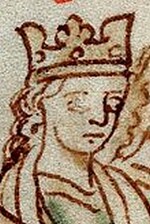
1373 – Birth of Joanna II of Naples
She was Queen of Naples from 1414 to her death, upon which the senior Angevin line of Naples became extinct. As a mere formality, she used the title of Queen of Jerusalem, Sicily, and Hungary.
Joanna was the daughter of Charles III of Naples and Margaret of Durazzo. In 1414, she succeeded her brother Ladislaus to the throne of Naples; at that date she was 41 years old and was already the widow of her cousin Hedwig's rejected fiancé, William, Duke of Austria. She married twice, but had no children.
1483 – Execution of Anthony Woodville, 2nd Earl Rivers.He was an English nobleman, courtier, and writer. He was the brother of Elizabeth Woodville,queen consort of King Edward IV After Edward's death he was arrested and then executed by Richard, Duke of Gloucester as part of a power-struggle between Richard and the Woodvilles.

1503 - Catherine of Aragon and Prince Henry were formally betrothed and a papal dispensation for the alliance was obtained.

1529 - Catherine of Aragon was found in contempt of the court of Blackfriars for not attending

Campeggio to Salviati
Yesterday I wrote all that occurred to me. This morning I caused myself to be borne to the place where we sit in judgment, as we had to take the King's oath today respecting the propositions and articles. We found him there in an adjoining chamber. After the ceremony had been completed, the King delivered to me a packet from the legate (Salviati) in France, of the 18th inst., enclosing your letter of the 3rd. I communicated its contents to the King. With regard to his affairs his Majesty says no more about past proceedings than I have written. He tells me he has written to his ambassadors, that although it was in the Pope's power to have done something for him, he rests satisfied, provided his Holiness do nothing against him in this citation. He has showed me a letter from his ambassadors, of the 7th inst., relating the arguments used by them to persuade the Pope not to exasperate the mind of his Majesty, and stating that he will do nothing whatever. They add in their letter that his Holiness has much faith in his Majesty, that he will not fail, in this negotiation for peace, to do what he has always done in favor and behalf of the Holy See. They bade the Pope to be of good cheer, as the King would not fail him, provided his Holiness did not interrupt this cause in any manner, which would exasperate the King's mind. They state that the Pope excused himself to them, saying they were to entertain no doubt on this head, as he would sooner suffer any thing, however terrible, in his own person.
On my recommending to his Majesty the interests of the Holy See and of the Pope, and inquiring if he would send any one to this conference, he hesitated for some time, and at length said he had not yet deliberated, but would send the Cardinal on the termination of this cause. I represented to him that it was impossible to terminate it in time. The King replied that as the French king had done so much for his Majesty, he would not refuse to postpone the negotiation for his sake. It seemed to me that he laid this down as a settled thing. He asserted that the congress of the Ladies would not take place on the 26th, as they wrote from France, but would be prorogued. He further told me that, in consequence of the declaration of war which he had sent to the Emperor, all their negotiations were broken off and at an end; and therefore it would not satisfy him to be named as a confederate by the French king in this peace, not even if he were comprehended with the former conditions, because it was inexpedient for them, least of all for the French king, as many of the conditions were adverse to him.
In fact, the King is evidently exerting himself to prevent the conference from arriving at any conclusion for the present, because he desires, first, to see the end of his cause, and then to send the Cardinal to conclude, at one and the same time, fresh articles with the Emperor and the universal peace. From all quarters I learn that lady Margaret warmly insists on this conference, and that the expectation of peace increases daily. I have had some suspicion that the Emperor and the French king were already in agreement, and a presentiment that this King and the Cardinal also had some doubts on this head; but now they seem to promise themselves much from the postponement of (the congress), and that it will not take place without an arrangement with the Emperor. In the course of conversation, York said to me, "Even were the French to act otherwise, we should still have the means of providing for ourselves, as there are ample mandates in Flanders to compound with us." As an argument for this postponement they urge that it will prevent the Emperor from entering Italy.
Pray, consider well in what travail I find myself,—not to speak of the sentence against the King, the Queen's contumacy, and their manner of proceeding. They conduct the trial in such a manner that it is impossible to act according to the evidence, in many cases, except after their fashion. London, 25 June 1529.
1530 – At the Diet of Augsburg the Augsburg Confession is presented to the Holy Roman Emperor by the Lutheran princes and Electors of Germany.
The Diet of Augsburg were the meetings of the Imperial Diet of the Holy Roman Empire in the German city of Augsburg. There were many such sessions, but the three meetings during the Reformation and the ensuing religious wars between the Roman Catholic emperor Charles V and the Protestant Schmalkaldic League in the early 16th century are especially noteworthy.
The session of 1530 attempted to calm rising tensions over Protestantism, especially due to fears of the rising Ottoman threat; the Ottomans under Suleiman had almost taken Vienna in 1529 and Charles V wanted Christianity to unite against this force. After the Edict of Worms had condemned Lutheranism, problems of enforcement emerged during the 1520s, as Charles V's wars against France and commitments in the rest of his empire prevented him from focusing on German religious problems. In 1529, however, he signed a successful peace treaty with France. After these successes, Charles aimed to assert his control over what he saw as German religious heresies It brought forth the Augsburg Confession, a central document of Lutheranism that was presented to emperor Charles V.
After his victory over the Schmalkaldic League, Charles V convened the Diet of 1547/48 (geharnischter Reichstag), where the Augsburg Interim was proclaimed. This attempt to give Catholicism the priority was rejected by many princes, though, and a resolution of the confessional tensions was only achieved at the session in 1555, where the Peace of Augsburg was concluded. The treaty acknowledged the Augsburg Confession and codified the cuius regio, eius religio principle, which gave each prince the power to decide the religion of his subjects.
The decrees of the Council of Trent were acknowledged in Italy, Portugal, Poland, and by the Catholic princes of Germany at the Diet of Augsburg held in 1566.
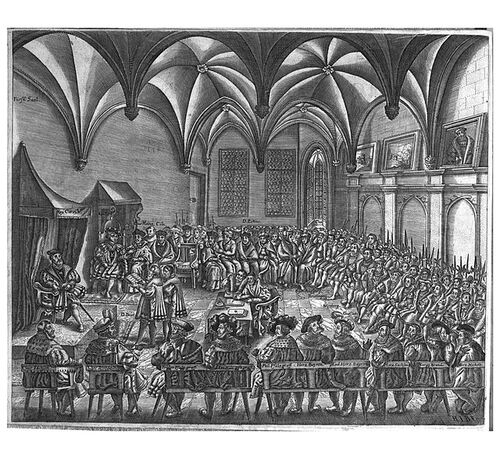
1533 - Death of Mary Tudor,Queen of France
Mary Tudor should be remembered as the Princess who defied her brother the King to marry the man that she loved
Erasmus said of her that "Nature never formed anything more beautiful."
She was the younger daughter of Henry VII of England and Elizabeth of York. She was married at 18 to the 52-year-old King of France, Louis XII. One of the Maids of Honour who attended her in France was Anne Boleyn. Mary was described by the Venetian Ambassador as "a Paradise—tall, slender, grey-eyed, possessing an extreme pallor". She wore her glorious silken red-gold hair flowing loose to her waist.When Louis died, Mary secretly married Henry VIII's friend, Charles Brandon, Duke of Suffolk.Mary's second marriage produced four children; and through her eldest daughter Frances, Mary was the maternal grandmother of Lady Jane Grey.
Mary died at Westhorpe, Suffolk, on 25 June 1533, and was first interred at Bury St Edmunds Abbey. Her body was moved to nearby St Mary's Church, when the abbey was destroyed during the Dissolution of the Monasteries.

1536-Anne Boleyn's Coronation.
Officers and noblemen with others who did service until the morrow after Midsummer Day, 25 Hen. VIII., according to the tenure of their lands and offices for the trial of their fees and profits.
The duke of Norfolk, marshal, by his deputy, lord William his brother, for that he himself was ambassador in France. The earl of Arundel, chief butler. The earl of Oxford, chief chamberlain. The earl of Shrewsbury, lord Talbot and Furnyval, did bear the sceptre and support the Queen's right arm, by the lord Talbot, his son, his deputy. The earl of Sussex, chief sewer. Viscount Lisle, chief panter. Lord of Burgavenny, chief larder. Lord Bray, for him and his coparceners, chief almoner. Sir Hen. Wyatt, chief ewer, supplied by his son Thos. Wyatt. Sir Giles Alington bare the first cup to the Queen. The canopy borne by 16 barons of the Cinque Ports. The Lord Mayor of London bare the cup at her void. The Mayor of Oxford kept the buttery bar. The duke of Suffolk, steward. The earl of Essex, carver. The earl of Derby, cupbearer, ex gratia.

1601 - Death of Peregrine Bertie, 13th Baron Willoughby de Eresby
He was the son of Catherine Willoughby, 12th Baroness Willoughby de Eresby, and Richard Bertie.Bertie was Lady Willoughby de Eresby's second husband, the first being Charles Brandon, Duke of Suffolk. Peregrine Bertie's half-brothers, Henry and Charles Brandon, died as teenagers four years before his birth. His sister Susan married the Earl of Kent and then the nephew of Bess of Hardwick. Owing to religious politics, the parents had to move outside England and the boy was born at Wesel on the River Rhine.

source:wikipedia,Encyclopedia Britannica, 11th Ed. Vol XVII. ,http://www.british-history.ac.uk/
-
24 June 1441 - Eton College founded by Henry VI
1509 -The coronation of Henry VIII and Catherine of Aragon
"It was a grand affair: the king's passage was lined with tapestries and laid with fine cloth.Following the ceremony, there was a grand banquet in Westminster Hall. As Catherine wrote to her father, "our time is spent in continuous festival"

The account written by the chronicler Edward Hall:

The following day being a Sunday, and also Midsummer's Day, the noble prince with his queen left the palace for Westminster Abbey at the appointed hour. The barons of the Cinq Ports held canopies over the royal couple who trod on striped cloth of ray, which was immediately cut up by the crowd when they had entered the abbey. Inside, according to sacred tradition and ancient custom, his grace and the queen were anointed and crowned by the archbishop of Canterbury in the presence of other prelates of the realm and the nobility and a large number of civic dignitaries. The people were asked if they would take this most noble prince as their king and obey him. With great reverence, love and willingness they responded with the cry 'Yea, Yea'.
When the ceremony was finished, the lords spiritual and temporal paid homage to the king and, with the queen's permission, returned to Westminster Hall - each one beneath his canopy - where the lord marshal bearing his staff of office ushered all to their seats. Each noble and lord proceeded to his allotted place arranged earlier according to seniority. The nine-piece table being set with the king's estate seated on the right and the queen's estate on the left, the first course of the banquet was announced with a fanfare. At the sound the duke of Buckingham entered riding a huge charger covered with richly embroidered trappings, together with the lord steward mounted on a horse decked with cloth of gold. The two of them led in the banquet which was truly sumptuous, and as well as a great number of delicacies also included unusual heraldic devices and mottoes.
How can I describe the abundance of fine and delicate fare prepared for this magnificent and lordly feast, produced both abroad and in the many and various parts of this realm to which God has granted his bounty. Or indeed the exemplary execution of the service of the meal itself, the clean handling and distribution of the food and the efficient ordering of the courses, such that no person of any estate lacked for anything.
.....
The following day the aforementioned defending team, lady Pallas's scholars, presented themselves before the king ready for the tourney. All on horseback and armed from head to foot they each had one side of their armor-skirts and horse-trappings made of white velvet embroidered with gold roses and other devices, and the other made of green velvet embroidered with gold pomegranates. On their headpieces each wore a plume of gold damask.
At the same time the other side rode in, the aforementioned eight knights fully armed and dressed, like their mounts, in green satin embroidered with fine golden bramble branches. Following them, blowing horns, came a number of men dressed as foresters or gamekeepers in green cloth, with caps and hose to match, who arranged a set like a park with white and green fencing around it. Inside this paddock were fallow deer and artificial trees, bushes, ferns, and so forth. Once set up before the queen the paddock gates were unlocked and the deer ran out into the palace grounds. Greyhounds were then let loose which killed the deer, the bodies of which were then presented to the queen and the assembled ladies by the above-mentioned knights.
Crocheman, who had brought in the golden lance the previous day, then declared that his knights were the servants of the goddess Diana and whilst they had been indulging in their pastime of hunting had received news that lady Pallas's knights had come into these parts to perform feats of arms. Thereupon they had left off the chase and come hither to encounter these nights and to fight with them for the love of the ladies.
He added that if lady Pallas's knights vanquished them or forced them to leave the field of battle then they would receive the deer that had been killed and the greyhounds that slew them. But if Diana's knights overpowers their opponents they were to be given the swords of those knights and nothing more.
Hearing this, the queen and her ladies asked the king for his advice on the matter. The king, thinking that perhaps there was some grudge between the two parties and believing that to grant the request might lead to some unpleasantness, decided not to consent to these terms. Instead, to defuse the situation, it was decided that both parties should fight the tourney but that only a limited number of strokes would be permitted.
This was done and the two sides then left the field. The jousts then came to an end and the prizes were awarded to each man according to his deserts.

THE CORONATION.
Coronation of the King: Copies of warrants of various dates in May, June, July and August, 1 Hen. VIII., for stuff provided by the Great Wardrobe against the Coronation of the King and Queen, and for their use and that of the Princess of Castile about that time. Folios 170–3 mainly refer to stuff for the nine henchmen and their master, and the five footmen . Total for the King's coronation
Coronation of the Queen
contain warrants for stuff for gowns, coats, &c., for particular persons, viz.:—Lady Elizabeth Stafforde, Lady Anne Piercey, Lady Lysle, Dame Elizabeth Bolen, the Earl of Shrewsbury's daughter, "Lady Dona Agnes," Lady Scrope, Mistress Maubell Clyfforde, Lady Savayll, Lady Mary de Grauara, Lady Bryan, Lady Darell, Lady Peche, Kateryn Fortes, Mrs. Denys, Mrs. Botyller, Mrs. Weston, Mrs. Jirnyngham, Mrs. Brevs, Mrs. Stanap, Mrs. Odall; Mary de Salyns; two of the Queen's footmen; three of her chamberers; Dame Margaret Pole; Mrs. Redynge; Anne Luke, the King's nurse; my lord of Ormond and Sir Robert Poyntz; William Bulstrode and Roger Radclyffe; Alonso Desquirvell, and John de Quero; Robt. Hasilrig and Oliver Holand, yeoman ushers with the Queen; Giles Duwes and three of his fellows; Richard Big; Sir Robert Dymmok, champion; Ralph Jenet and four of his fellows of the Wardrobe; James Worsley and John Copynger of the Wardrobe of Robes; John Crochet, the King's armourer; Henry Pole; John Chaunte (or Chauntey) "le sage doctour"; Lady Eliz. Stafford, and seven other ladies and gentlewomen; Mrs. Mary Jernyngham; the Queen's stable; Sir Davy Owen, carver, and Ric. Hastynges, cup-bearer for the King; Alexander Thrognall, chief carver, Edward Jernyngham, chief cup-bearer, and John Varney, chief sewer for the Queen; Sir Thomas Lovell, Treasurer of Household, Sir Andrew Wyndesore, Keeper of the Great Wardrobe, my lord of Oxford, Great Chamberlain of England, the abbot of Westminster, and the Queen's Chancellor and Confessor.
Ff. 191b. and 192 are occupied with wages of skinners and other necessary expenses. Total (f. 192b.) for the Queen's coronation, 1,536l. 16s. 2½d.
At f. 193 begins the list of purchases of scarlet and red cloth from John Bounde, John Saxey and many other merchants, the totals (f. 196) being scarlet 1,641 yds., red cloth 2,040 yds., and the whole cost 1,307l. 11s. 3½d. F. 196b. contains the list of white and green woollen cloth (240 yds. of each) as purchased for 100 persons of the King's Bench and 60 of the Marshalsea "bearing tipped staves at the coronation." Total cost of silks, scarlet, red cloth and necessaries, 4,748l. 6s. 3d.
At f. 198 begins a list showing number of yards (of scarlet and red cloth, as appears by totals of each kind noted page by page) delivered to each of the following, viz.:—
The bp. of Canterbury, Chancellor, the bp. of Winchester, Privy Seal, the bp. of Durham, Secretary, my Lord Treasurer, the Master of the Rolls, the lord Herberd, King's Chamberlain, Sir David Owen, first carver, Ric. Hastynges, first cup-bearer, Sir Wm. Vampage, first sewer, Henry Wyott, Master of the Jewel House, William FitzWilliam, second cup-bearer, Sir Thomas West, second carver, Sir Andrew Wyndesore, Master of the Great Wardrobe. The King's Bench:—Sir Wm. Fyneux, Chief Justice, Robert Brudenell and Humphrey Conysby, justices. The "Comyn Place":—Sir Robert Redd, Chief Justice, Sir John Fyssher, John Butteler, and Wm. Greveld, justices. Barons of the Exchequer:—Sir Wm. Hoody, Chief Baron, Barth. Westby, Wm. Bollyng, John Aleyn. The King's serjeants:—Ric. Elyott, Lewis Pollard, John Ernley, King's attorney, Wm. Porter, Clerk of the Crown, Edward Lewkenour, gentleman usher.
The King's Household:—The Earl of Shrewsbury, steward, Sir Thomas Lovell, keeper of the Great Wardrobe of the Household, Sir Edward Ponynges, controller. Counting House: John Shurley, cofferer, Wm. Atlyff, Thomas Byrkes, John Miklowe, clerk controller, John Robyns, clerk of records, Edw. Welden, clerk cofferer, Thomas Darell, yeoman usher. Bakehouse: Ric. Guyll, serjeant, John Bartilmewe, clerk, John Downer, yeoman "for the mouth," Henry Freyne, yeoman furnour, John Skern, purveyor, Henry Perkyn, groom purveyor, Hugh Mathewe, yeoman garnetor. Pantry: Stephen Coope, serjeant, Edw. Addeley, yeoman for the mouth, Griffith Gwyn, groom for the mouth, Ric. Bendon, Wm. Busshe and Robert Rochester, yeomen of the Hall, John Knolles, yeoman "brewer," Ric. Carpenter, John Egleston and Robt. Johnson, grooms of the Hall, Thomas Blythe and Thos. Brampton, pages of the Hall. Cellar: Roger Mynors, serjeant, Thomas Bell, yeoman for the mouth, John Brent, groom for the mouth, Edw. Atwood, yeoman "brewer," Ralph Annesley and Thos. Parker, grooms at the bar, Hen. Hakker and Noel Loveday, pages, Alen Kyng, yeoman purveyor, Maurice Apparrey, yeoman for the bottles. Buttery: Wm. Hogeson and Wm. Bawdy, yeomen, Edw. ApJohn, John Gylmyn and John Saulkyll, grooms, Thomas Annesley and Ric. Parker, pages, Wm. Kerne, yeoman ale taker, Thomas Cooke groom ale taker, Wm. Bowman, groom ale taker. Pitcher House: Thomas Orme and George Vanhorn, yeomen, Wm. Depyng, John Parre and John Man, grooms, John Stanbanke and Thomas Peper, pages. Spicery: Nic. Hill, chief clerk, Nic. Uddelston, second clerk, John Mery, under-clerk, Wm. Herd, yeoman powderbeter. Confectionary: Ric. Babbam, serjeant, Robert Dowker, yeoman, John Wolbaston, groom, Wm. Towres, page. Wafery; Robert Lee, groom. Chaundry: John Ketilby, serjeant, John Symond, and Wm. Rutter, yeomen, Ric. Merston and Wm. Coterell, grooms, Robert Spurnell, page. Ewery: George Brocas, serjeant, Edm. Lovesey and Wm. Wymbysshe, yeomen, Roger Bedyll, yeoman for the Hall, Wm. Davy and John Edwardes, grooms, Thomas Pacheford and Thomas Wyldyng, pages. Laundry: Hugh Deane, yeoman, Robert Bryce, Thomas Morres and Thomas Judde, grooms, John Sutton and John Mylt, pages. Kitchen: Ant. Legh, chief clerk, Edw. Atclyff, 2nd clerk, John Cony, 3rd clerk, Thomas Barowe, master cook, John Case, yeoman for the mouth, Wm. Meryman, Pero and John Hunt, yeomen, Wm. Bolton and George Nelson, grooms, Robert Elys, yeoman for the Hall, Gilbert Alenson, Nic. Lenton, and James Dewam, yeomen, Wm. Beryman, groom of the Hall, Lancelot Clerk and Wm. Mayo, grooms. Larder: John Ricroft, serjeant, Wm. Blaknall, clerk, John Forster, yeoman for the mouth, John Gogh, yeoman usher, John Dale, yeoman of the larder, Richard Appulby, groom usher, Thomas Assheley, Robert Warner and James Michell, grooms, John Grove, page. Boiling House: Roger Elys, yeoman, Wm. Stephyns and Thomas Russell, grooms. Accatry: Brian Roche, serjeant, Gervas Buklond, clerk, Edm. Sherp, yeoman for the mouth, John Stratton, yeoman of the store, Wm. Honnyng, yeoman fisher, John Plome, yeoman butcher, Thomas Randolff and Robert Newman, yeomen, Thomas Raven, groom butcher, Robert Steyneford, groom, Ric. Cudd and Ric. Gybons, herds, James Huddylston, keeper of Creslowe, Wm. Atkynson, pig taker. Poultry: Thomas Ynglysshe, serjeant, Wm. Bonde, clerk, Wm. Burwell, Thos. Strode and Nic. Warde, yeomen purveyors, John Lylle, Thomas Shalford and John Botyll, grooms. Scaldinghouse: Wm. Thomson, yeoman, Ric. Hill, Rog. Kylward, Thos. Hervy, Rob. Lewesham, and John Proctour, grooms. Squyllary: John Sterkey, serjeant, Ric. Anyden, clerk, John Dey, yeoman for the King, John Spokesman, yeoman, John Lovedey, yeoman for the Hall, John Harreson, yeoman, Boyt Joys, James Skelton and Wm. Foly John, grooms. Saucery: Ric. Pyttour, serjeant, Ant. Neele, clerk, John Fulmer and John Congell, yeomen, Ralph Holyn, John Summan, Gilbert Borowe and Wm. Seynt, grooms. The Hall: Chr. Vyncent, John Stephyns, John Lytcote, John Gyttons and Morgan Holand, marshals, Wm. Lathebury, serjeant, Ric. Lee, clerk, Wm. Chace, Ric. Benson, John Hewett and Edw. Ouseley, yeomen, John Kyllyngworthe, John Parker, John Savell, John Henkyn and Robert Bowyngton, grooms, Robert Clerk and John Tirrill, pages. Porters: Thomas Fogg, serjeant, Evan ap Rice, Thomas Greves, John Lynsey, John Passey, Robert Maunger and Robert Thornhey, yeomen, Hugh Jeynyng and John Jely, grooms. Harbingers ("Harbegeours"): Thomas Mathewe, gentleman, Humphrey Wylede, Wm. Treswell, Thomas Ward and Ric. Twety, yeomen. Almonry ("Amnosnery"): Doctor Ednam, great almoner, Sir John Hawkesfeld, under-almoner, John Hether and Thomas Dey, yeomen, Ric Dyves and John Dey, grooms. Mr. Robert Yong, confessor of the Household, William Edwardes, surveyor for the King, Edward Otheney, sewer of the Hall, Wm. Fynall, John Segysmond and John Lloyd, sewers, Thomas Rider, surveyor for the Hall, Thomas Mangall, surveyor. Cart takers: John Ewdale, yeoman, and John Sherp, groom. Servitors of the Hall: Robert Whitlok, Thomas Dederygh, Edm. Sampson, Ric. Stylbarnd, John Gogh, Robert Colle, Robert Dyker, Henry Kyghley, Reynold Hylles, Maurice Kydowen, Simon Symms, Roland Roosse.
The Stable:—Wm. Pawne, avenor, Robert Turk and Ralph Damport, clerks of the Avery, George Lokekyn, clerk of the Stable, Robert Elyott, serjeant of the Carriage, Ric. Cameryngham, serjeant ferrour, John Nevell, yeoman of the Horse, Robert Bartram, surveyor of the Stable, Ric. Annesley, yeoman of the Stirrup, Walter Harper, yeoman of the Male, Wm. Gykyll, Wm. Hortop, Hen. Bryan and George Colbrond, yeomen purveyors, John Grene, yeoman garnettour, John Parrok, Thos. Wylson, Wm. Boldyn, yeomen ferrours, Wm. Style, yeoman saddler, Thomas Brewester, yeoman of the Chariots, John Cokkes and John Colyns, yeomen, Wm. Cobbe, Thos. Butler, Rob. à Legh, James Jakson, Ric. Merydewe, Edw. Smythe, John Rigmeyden, Rob. Gamell, John Ferrett, John Loksmythe, Edw. Ewstace, Thos. Seve, and Thos. Dawson, coursermen, Wm. Wood, Thomas Dale, Henry Webbe, Nic. Perwhite and John Williams, grooms of the hackneys, Ric. Grenewood, yeoman garnetor; John Broke, clerk of the market.
The King's Chapel:—Priests: Dr. Atwater, dean, Ric. Surlond, Roger Norton, John Kyte, John Coole, Wm. Toft, John Annes, John Fouler, gospeller. Gentlemen: Robert Feyrefax, Wm. Newark, John Sudburgh, Wm. Broun, Wm. Cornysshe, Edw. John, John Petwyn, Wm. Crane, John Weyver, John Penne, Robert Penne, Wm. Sturton, John Smythe, Thos. Sexton, John Fyssher, Henry Stevynson. Wm. Dobeney, Henry Prentyce and the serjeant of the Vestry. Epystelers: Robt. Hawkyns, John Buntyng, Nic. Hornclyff, Geoffrey Wryght, groom. Children: Wm. Colman, Wm. Maxe, Wm. Alderson, Hen. Merell, John Williams, Arthur Lovekyn, Nic. Ive, John Graunger, Edw. Coke, Henry Andrewe.
The Queen's Chamber:—The lord of Ormond. chamberlain, Sir Robert Poyntz, vice-chamberlain, Diego Fernando, confessor, Dr. Bekensall, almoner, Alex. Frognall and Edw. Knevett, carvers, Edw. Jernyngham, cup-bearer, Ric. Decons, secretary, George Bekonsall and John Verney, sewers, Roger Ratclyff, Wm. Bulstrode and Edw. Benstede, gentlemen ushers, Ant. Polen and John Moreton, sewers of the chamber, Hamnet Clegge, Thomas Morgon, Thomas Gardygan, Nic. Poyntz, Owen Holand and Edw. Skern, squires attendant, Wm. Pole, serjeant of arms. Yeomen ushers: Robert Hasilrygge and Oliver Holand, yeomen ushers; Ellis Hilton of the Robes, Wm. Hamerton of the Beds, Thomas Woodroff, Oliver Walcotes, John Fysshe, John Kyng, Thos. Burton, George Hamerton, Alonus Spanyard, John Verson, John Glyn, Ant. Lowe, Hugh Jenyns, Francis Phillipp. Grooms of the Chamber: Ric. Justice of the Robes, Henry Roper of the Beds, Wm. Kery, groom porter, Bart. Fryse, Ric. Ryle, Wm. Coke, Ralph Thomson. Pages of the Chamber: Ric. à Woode, page of the Chamber, Wm. Welsshe, John Wryght. Chaplains: Sir Peter Rodrygus, Sir Chr. Plommer; Sir John Swann, clerk of the Closet, Mr. John De Potycario, Griffith Richardes, clerk of the Signet, John de Scutea, the Queen's secretary for the Spanish tongue. Officers for the Queen: (Bakehouse) John Adams, groom for the mouth; (Pantry) Ric. Brampton, gentleman, Nic. Clyff, yeoman; (Cellar) Thos. Annesley, gentleman, John Dolman, yeoman, George Ducworthe, groom, Brian Annesley, yeoman of the bottles; (Buttery) Wm. Fytton, yeoman; (Ewery) John Awrey, gentleman, Ric. Amer, yeoman, George Wrey, groom; (Kitchen) John Case, master cook, Wm. Bryce and James Durham, yeomen, James Dale, groom; (Acatry) Thomas Tylley, yeoman purveyor; (Larder) Thomas Astley, groom; (Almoners) Ric. Hert, yeoman, Wm. Dawtre, groom. Ladies: Ladies Elizabeth and Anne Stafforde and Margaret Pole. Countesses: Of Oxenford, Surrey, Shrewsbury, Essex and Derbie. Baronesses: Ladies Anne Percy, Dona Agnes, Matravers, Burgevenny, Lysle, Elizabeth Boleyn, Lucye, the Earl of Shrewsbury's daughter, Scrope, Ferrers and Dacres of the South. Knights' wives: Lady Verney, Mrs. Mabel Clyfford, Lady Savile, Lady Bryan, Dona Maria de Gavara, Lady Darell, Lady Peche. Gentlewomen: Katerina Fortes, Mrs. Denys, Mrs. Butler, Mrs. Weston, Mrs. Jernyngham, Mrs. Brewce, Mrs. Stannop, Mrs. Odell.
The Queen's Stable:—Sir Thomas Tirrell, master of the horses, John Buntayn, avener, Ant. Carleton, clerk of the avery, John Atclyff, clerk of the stable, John Roodes, yeoman purveyor, John Custance, groom, Wm. Dame, yeoman ferrour, Piers Harreson, groom, John Palmer, and Ric. Redehede, saddlers, John Coope, yeoman of the stuff, John Broun, groom, John Bell, yeoman of the litter, Wm. Sugden, groom, John Harman, gentleman of the "chare," Humph. Swetyng, yeoman, John Broun, groom, Wm. Stephynson, page, Ric. Parker, yeoman of the "close chare," John Durraunt, groom, Piers Butler, page, Thomas Hopkyns, yeoman of the "chariot," John Tendryng, groom, Roger Burton, page, John Reynold, yeoman of the "stode." Palfreymen: Roger Curson, Wm. Kendall, Thomas Stubbys, Nic. Frensheman, John Taillour, Thos. Davell, Ric. Broke, Alex. Watmer, Thos. Amptell, Michael Keton, Dennis Irysshe, Hugh Lloid, Robt. Sutton, Thos. Dey, yeoman "granatour," Thos. Peke, groom. Sumptermen: Robert Dale, "pekman," Wm. Johnson for the bottles, John Stephynson and Thos. Balle for the beds, Humph. Salysbury for the robes, Thomas Benet for the closet, Wm. Kempe for the "seller," Thurston Prestlond for the "besage," and Henry Teylour and Peter Foxley, servants with the horses.
[The King's Chamber?:—] Sewers: Henry Pennago and Hen. Guylford. Gentlemen ushers daily waiters: Robert Knolles, John Whytyng, Ralph Egerton, Chr. Garnysshe. Gentlemen ushers quarter waiters: Henry Uvedall, Thomas Carmynowe, John Gifford, George Kene, Francis Barnard, Hen. Wentworthe, Thomas Ryder. Sewers of the Chamber: Francis Budd, Nic. Hyde, Thomas ap Rice, Walron Coghan. Yeomen ushers daily waiters and yeomen of the wardrobes: Ralph Jenett, Robert Russheton, John Grey, Richard Smythe, Wm. Cheyny. Messengers of the Chamber: John Gysell, Wm. Gentilman, Thos. Halley, Leonard Warcopp. Grooms of the Chamber: Wm. Compton, Wm. Thomas, John Sherp, Wm. Tyler, John Bigge, Walter Badham, Peter Malvesey, Wm. Dawborne, Robert Hert, John Pultney, John Lloid, Nic. Baker, Jenkin Vaghan, Chr. Rochester, Wm. Gower, Robert Litle, John Pate, James Worseley, Wm. Croughton, the King's hosier. Pages of the Chamber: Henry Kemyas, Massy Velyard, Peter Champyon, John Copenger, the Clerk of the Closet, Thomas Wobaston, Thomas Carvannell. Serjeants of arms: Robert Wesshyngton, Edw. Griffithe, Wm. Butler, Lyonel Crowford, Hugh Sterkey, John Roydon, Gilbert Mawdesley, James Conyers, John Hamerton, Maurice Butler, Hugh Chomley, Thomas Russhe, Thomas Twysaday, Robert Marleton, John Herper, Nic. Downes. Squires for the Body: Matthew Baker, Ant. Fetypace, Thomas Apar, Sir John Carewe. Sewers of the Chamber: Ant. Cotton, Master Mewtas, the French secretary, Alex. Staveley, as groomporter. Squires for the Body: Hugh Denys, Ric Weston, John Porth, keeper of books, Joscelyn Percy, Henry Reynold George Assheby, Wm. Salfford, Brian Tuke, John Millet. John Tryes, Ric. Alee. Dr. Chamber and Dr. Lacy, physicians, Henry Frowyk, Henry Cleyton. The Styll Shalmes: John Chamber, marshal, John Furneys, Thomas Spence, Thomas Grenyng, Thomas Mayow, John à Bys, Ric. Waren, Thomas Pegion, Bartram Brewer, minstrel; Wm. Altoftes, the King's surgeon. Officers of arms; Garter, Richmond and Norrey, kings, Somerset, herald. Pursuivants: Rougecrosse, Blewmantell, Caleys, Guynes, Hammes, Risebank, Berwyke, Mounteorgell, Kyldare. Wm. Norres, master of the King's hawks. "Sakbuddes and shalmes of the Prive Chamber": Johannes, William, Alexander, Edward; Georgius Bryghouse; Piers Crosbowmaker. Squyllary: John Baronby, groom, Wm. Rice and Lewes John, pages; John de Napulles, Thomas Whetley, Thomas de Sawsse, Wm. Jones; Piers Barbour; John Veyrye, the King's surgeon. John Smythe, groom of the Wardrobe, John Colynson, groom of the Leash. The King's trumpets: Mr. Peter, marshal of the Trumpets, Jaket, Franke, John de Cecill, Domynyk, Audryan, Christopher, John Broun, John Banke, John Hert, Thomas Wrethe, John Frere, John Scarlett, John Strett, Robert Wrethe. Bountaunce. Mr. Richard Rawson, clerk, Mr. James Denton, clerk. Henry Clyfford, esquire. Thomas Mynowrs, page of the Chamber. Sumptermen: Wm. Kevet, Ph. Franke, Thomas Elsey, Wm. Wilson, John Felton, John Halyday, Thomas Towres, Thomas Turnor, and John Wedir, grooms, Thomas Pygrym and Wm. Sawell, grooms of the chariot, Wm. Magotson and Ric. Kyme, pages, Wm. Rudhale, general attorney to the Queen, Mr. John Oxenbryge and Mr. Robert Fyssher, chaplains, Thomas Lucy, sewer, John Smythe, almoner, Francis Letyre, Peter Falconer, Patrick Falconer, Pety John Falconer, Hugh Falconer, Matthew Falconer. Stephen Jasper. Sir Robert Suthwell, knight, Sir John Cutte, knight, Mr. John Porthe, the King's solicitor, — Bellowse, clerk of the Council, Henry Smythe, controller of the Works, Phyppe, keeper of Merten the King's fool. Servants belonging to the Wardrobe: Laurence Gower, Ric. Ratclyff, Ric. Newton, Wm. Gisnam, Wm. Duffeld, Chr. Wentworth, John Pastrell, Robert Thomson, John Rynge.
"The abridgment of the precedent of the coronation" of, Henry VIII.and of Queen Catherine his wife."
Showing what Wardrobe stuff was required for dress and other purposes (described) on the eve and day (24 June) of the Coronation, the names of the "ladies and gentlewomen which shall ride after the Henchmen and after the `chares' in the Queen's livery of crimson velvet bordered as is appointed" (viz., 21 of the ladies, baronesses, knights' wives and gentlewomen named of the Queen's chamber in § 1), and the "rate and prices of liveries to be given at the Coronation," according to the rank and office of the recipients. With memorandum that this rate was appointed by the Countess of Richmond, Earls of Oxford and Shrewsbury, Lord Herbert and others of the Council, in the chamber of the said Countess.
1519 - Death of Lucrezia Borgia,daughter of Pope Alexander VI and Vannozza dei Cattanei. Sister of Cesare Borgia, Juan Borgia, and Gioffre Borgia.


1522 - Battle at La Bicocca: Emperor Karel V beats France
1523- Margaret to Henry VIII
Is much grieved at this mortal war between him and her son's realm. Without God's help and his, sees no remedy, for the noblemen are so abused by the lord Governor that they dare not undertake anything for the King's welfare or their own. If she might mediate with him, would take any pains. Hears from Surrey and Dacre that all Henry does is for the safety of his nephew, not from malice to the realm, and therefore beseeches him to do something for her sake, that it may be seen and known here that he will do something for her. As her son is under age, wishes he would consent to an abstinence of war till Michaelmas, that the councils of the two realms may meet for the purpose of peace, with a condition that if Albany come into the realm, and be not content therewith, it shall expire in twenty days; for none in this realm dare consent to any abstinence, unless he may break it when he chooses. If Henry grants this, and Albany breaks it, the breach will be seen not to be Henry's fault. It would be the greatest comfort to her if by her labor this business could be stopped.

1529-Campeggio to Salviati
On the evening of the 22nd, Dr. Stephen [Gardiner] and [Sir Francis] Brian arrived. Owing to this the courier has tarried till now.
The cardinal of York has showed me a letter in the Pope's own hand to himself and the King, containing credentials for me "respecting the premises and other public business." As I have received no letters from you, either by Dr. Stephen or by Thaddeus, who arrived with them, I have not known what answer to make up to the present time, except that I have no letters, though probably they are on the way, under direction to the legate Salviati; and that as to "the premises," which referred, as it seemed to me, only to these affairs of the King, I had nothing further to say to them than to confirm what I had so frequently told them, namely, that if the Pope had not done what they could have wished in reference to the brief and their other demands, this would not have occurred had the Pope been able to act with justice and honor. With regard to public affairs, I reminded them that they should continue their protection and defence of the Holy See, as they had done in the past, according to the hope and faith which the Pope reposed in his Majesty, especially in respect to this treaty of peace.
I understand that the French king desires the presence of the cardinal of York at this negotiation at Cambray, as also does this King, but not before the termination of this cause, for which they importune beyond measure. London, 24 June 1529.
1533 - Mary Tudor to Henry VIII
"Has been very sick "and ele ates" (ill at ease). Has been fain to send for Master Peter the physician, but is rather worse than better. Trusts shortly to come to London with her husband. Is sure, if she tarries here, that she will never "asperre the sekenys." Will be glad to see the King, as she has been a great while out of his sight, and hopes not to be so long again."

1533 - Birth of Robert Dudley, earl of Leicester
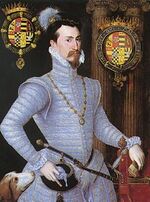
1534-John of Leyden Crowned King of Sion
1535 - Birth of Joan of Spain, queen consort of Portugal

1540 - Henry VIII commands Anne of Cleves, to leave the court.

1604 - Death of Edward de Vere, 17th Earl of Oxford, Lord Great Chamberlain of England
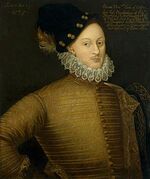
source:http://www.british-history.ac.uk/,http://englishhistory.net/





